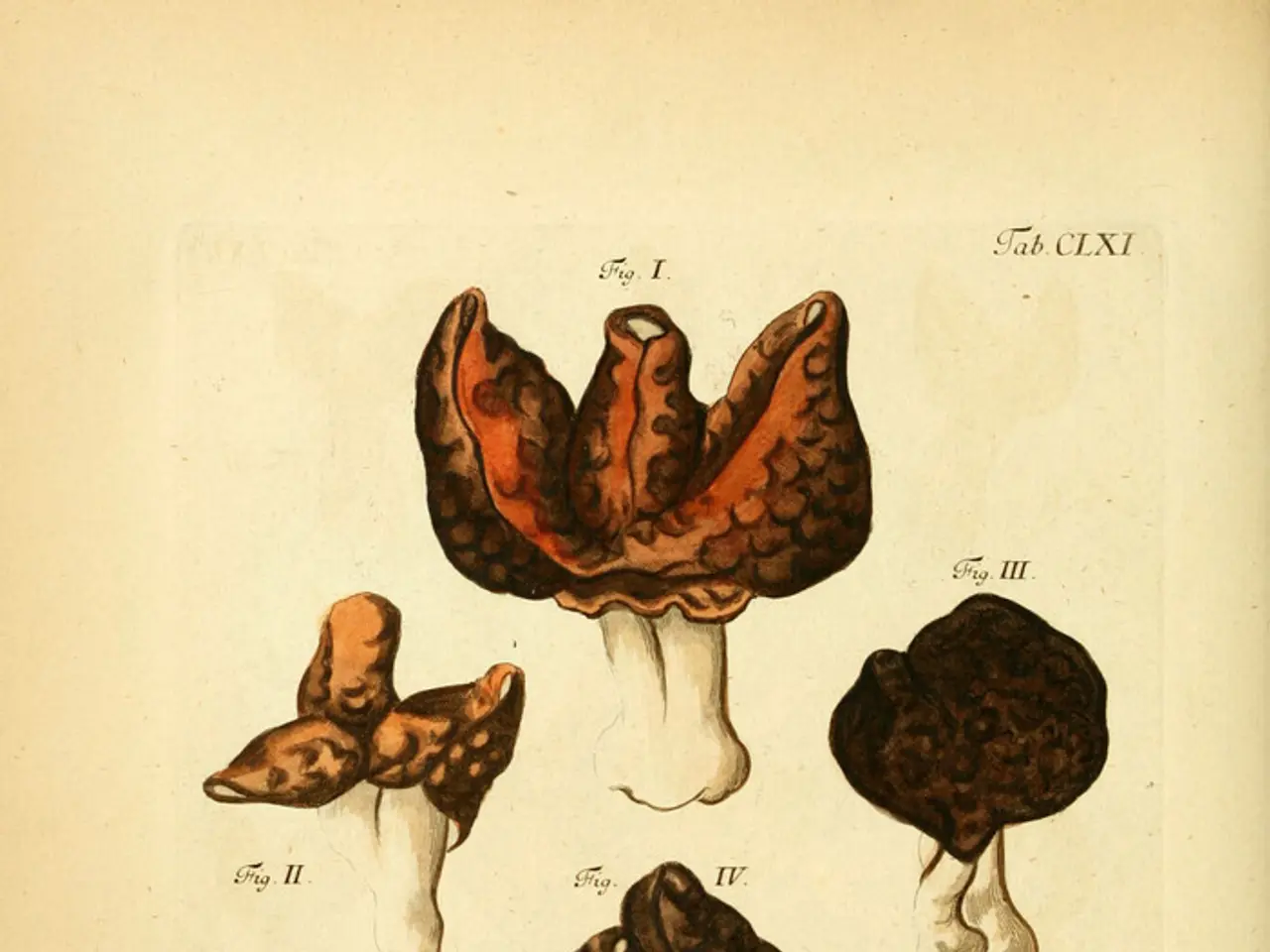Reproduction that skips the need for mating and intercourse
In a groundbreaking study published in the Journal of Fungi, biology student Hannah Elders and Dr. Florian Hennicke have uncovered fascinating insights into the reproductive biology of the Tawaka fungus. The study, which can be accessed using the DOI 10.3390/jof7050394, discusses the possibility of wild Sword-belt Mushroom populations reproducing primarily through monokaryotic fruiting in the narrow sense.
The Tawaka fungus, also known as Cyclocybe parasitica, is a fascinating organism. It is an edible wild mushroom in the Pacific region and attacks the Tawa tree (Beilschmiedia tawa), which is relevant to the timber industry in New Zealand. The study focused on the sister strains of Cyclocybe parasitica, mainly Cyclocybe aegerita, which are found mainly in Europe and East Asia.
The researchers used tissue sectioning techniques and microscopy to reveal the exact anatomical differences between the complex multicellular structures of these sister strains. They discovered that these fungi can produce precursors of fruiting bodies to varying degrees, with one precursor, the stromatic type, previously only known from bracket fungi.
Remarkably, the study identified a competent strain of the fungus that can produce almost fully developed fruiting bodies, suggesting that the Tawaka fungus, like its European relative, the Sword-belt Mushroom (Cyclocybe aegerita), can develop a complex structure for sexual reproduction on its own.
The findings are significant in the field of fungal research, as they shed light on a question that has been unanswered for decades: whether wild Sword-belt Mushroom populations occur in nature that reproduce primarily through monokaryotic fruiting in the narrow sense. The results are also interesting from an ecological perspective, as they suggest that monokaryotic fruiting may provide agarics with greater ecological fitness by recombining genetic information despite the absence of a mating partner.
This study not only deepens our understanding of the Tawaka fungus but also opens up new avenues for research in the field of fungal reproductive biology. Elders and Hennicke's work provides a valuable contribution to our understanding of these fascinating organisms and their role in the natural world.
Read also:
- Impact of a Government Shutdown on Citizens
- Medical Specialist Based in Visakhapatnam
- Individuals in New York afflicted by Legionnaires' disease have legitimate legal entitlements. Here's some essential information on the matter.
- Toxic Shock Syndrome: Signs, Origins, Tampon Connection, and Further Details







